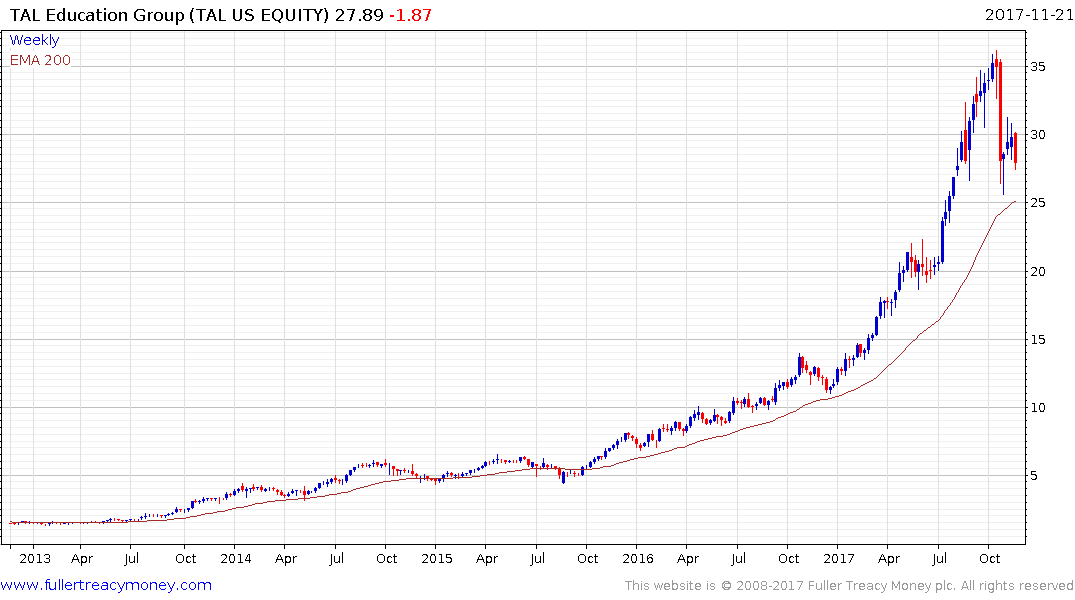One in three Chinese children faces an education apocalypse. An ambitious experiment hopes to save them
This article by Dennis Normile for Sciencemag.com may be of interest to subscribers. Here is a section:
One in three Chinese children faces an education apocalypse. An ambitious experiment hopes to save them – This article by Dennis Normile for Sciencemag.com may be of interest to subscribers. Here is a section:
The result is a widening gap between urban and rural educational achievement in China, Rozelle says. Many urbanites fit the stereotype of "tiger" parents, pushing kids to excel in school. After hours, their schedules are packed with music and English lessons and sessions at cram schools, which prepare them for notoriously competitive university entrance exams. More than 90% of urban students finish high school.
But only one-quarter of China's children grow up in the relatively prosperous cities. Rural moms have high hopes for their children; Rozelle's surveys have found that 75% say they want their newborns to go to college, and 17% hope their child gets a Ph.D. The statistics belie those hopes: Just 24% of China's working population completes high school.
Rozelle believes such numbers bode ill for China's hopes of joining the ranks of high-income countries. Over the past 70 years, he explains, only 15 countries have managed to climb from middle- to high-income status, among them South Korea and Taiwan. In all those success stories, three-quarters or more of the working population had completed high school while the country was still in the middle-income bracket. These workforces "had the skills to support a high-income economy," Rozelle says. In contrast, in the 79 current middle-income countries, only a third or less of the workforce has finished high school. And China is at the bottom of the pack. School dropouts don't have the skills needed to thrive in a high-income economy, Rozelle says. And, worryingly, the factory jobs that now provide a decent living for those with minimal training are moving from China to lower-wage countries.
Rozelle thinks a lack of opportunity isn't the only factor holding back China's rural children. Physically and mentally, they are also at an increasing disadvantage, hampering their performance in school and their prospects in life.
You might remember last year the OECD’s Pisa rankings of schools was released and China featured particularly highly. That is because the data only looked at Beijing, Shanghai, Guangdong and Jiangsu where the best of the country’s education resources are concentrated. As the above article highlights the real story is of a country that still has a long way to go in equipping its population with the tools necessary to succeed in the 21st century.
That’s something just about everyone everywhere needs to be concerned with. The pace of automation is picking up and almost every job is becoming more digital. That is going to require a more nuanced approach to learning as well as the introduction of whole new technology oriented curriculums. Education shares have been among the better performers over the last couple of years as a result.

2U, which provides software to universities for their online programs, has been trending higher in a consistent manner all year. It is becoming increasingly overextended relative to the trend mean but a clear downward dynamic will be required to check momentum beyond a pause.

Among Chinese tutoring services, TAL Education pulled back sharply in October to close the overextension relative to the trend mean and will now need to hold the $25 area if support building is to be given the benefit of the doubt.

New Oriental Education & Technology Group was less explosive on the upside and therefore fell less. It continues to hold its progression of higher reaction lows.
While prosperous city dwellers on the coasts are pouring money into tutoring for their children one of the major results of the Communist Party Congress is that more focus will be put on indoctrination in schools than promoting science and creative thinking. That is likely to add to the list of challenges the education system has in attaining better standards. Here is a section from a related article from Bloomberg.
A final goal should be reforming curriculums. China is famous for requiring rote memorization of its students. But schools are also increasing classwork on communist ideology, Confucian thought and even Traditional Chinese Medicine. The emphasis should instead be on skills -- such as creativity and unstructured problem-solving -- that will help drive entrepreneurship and innovation, and ensure that students can compete in a world of robots and drones.
Back to top

